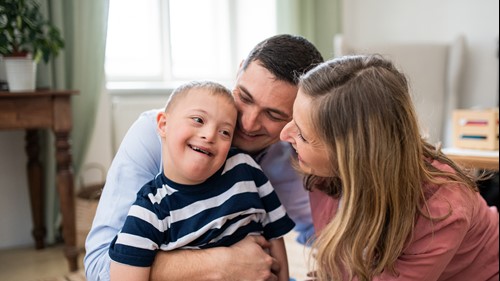
Carers Week 2021
Posted on: 7/06/2021Carers Week takes place every year to raise awareness of the army of carers we have across the country.
The campaign highlights the challenges that unpaid carers face and recognises their contribution to their families and communities throughout the UK. It also helps people who don't think of themselves as having caring responsibilities to identify as carers and access much-needed support.
As with most things, the role of carers has become much more difficult over the last year, with the COVID-19 pandemic. Therefore, it is even more important to recognise the amazing contribution our carers make to people's everyday lives.
Who is considered a carer?
A carer is anyone, including children and adults, who looks after a family member, partner or friend who needs help because of their illness, frailty, disability, a mental health problem or an addiction and cannot cope without their support. The care they give is unpaid.
Many carers don’t see themselves as carers and it takes them an average of two years to acknowledge their role as a carer. It can be difficult for carers to see their caring role as separate from the relationship they have with the person for whom they care, whether that relationship is as a parent, child, sibling, partner, or a friend.
It’s likely that every one of us will have caring responsibilities at some time in our lives. Many people juggle their caring responsibilities with work, study and other family commitments. Some, in particular younger carers, don’t tell relatives, friends or health and care professionals about their caring responsibilities because of a fear of separation, guilt, pride or other reasons.
This means that the sort of roles and responsibilities that carers have to provide varies widely. They can range from help with everyday tasks such as getting out of bed and personal care such as bathing, to emotional support such as helping someone cope with the symptoms of a mental illness.

How can Progress Lifeline support carers?
Do you have caring responsibilities for relatives or friends due to a health condition or disability (mental or physical), they may have? At Progress Lifeline, we recognise and respect everyone who is carrying out the role of a carer and know that this can be a tough and lonely job.
We can provide support and assistance through our personal alarms and sensors. The purpose of telecare is not to replace you as the carer, but to allow you to leave the house, or get a good night’s sleep, confident that you will be informed if an emergency occurs.
Benefits of telecare for carers include:
- Less stress and worry – peace of mind about the person you are looking after
- A greater sense of freedom knowing that you would be alerted should there be a problem with the person you are looking after
- Better sleep and more opportunities to relax and pursue your own interests and hobbies
- By taking some time for self-care, can help you look after your loved ones more easily
Case study: Husband Ron becomes full-time carer for wife Lynda
After she suffered a stroke a few years ago, retired nurse Lynda required full-time care from her newly retired husband, Ron. Lynda became a Progress Lifeline customer and is now supported by the personal pendant alarm and falls detector, ensuring help is always close at hand. Watch their story here -
How do we support colleagues who are carers?
Earlier this year, we started to set up a carers network for colleagues across the Progress Group who are carers. At the moment, this involves a handful of people who have various caring responsibilities for the young and old. Coming together each month to share their story, get support and talk to others who know what they are going through. It is informal, nobody is an expert, but we do share common experiences and challenges.
If you would like to find out more about this year's Carers Week and help make caring visible and valued, then have a look at their website and see how you can start sharing the message and promoting the valuable contributions made by carers here.